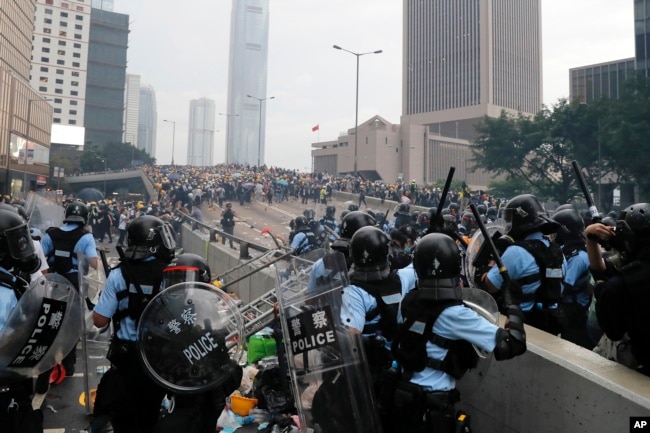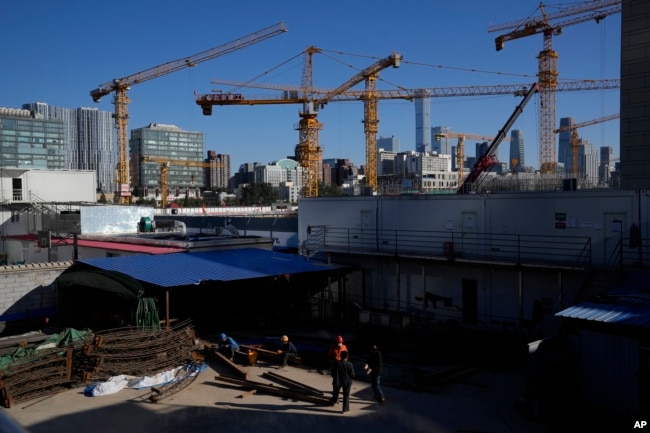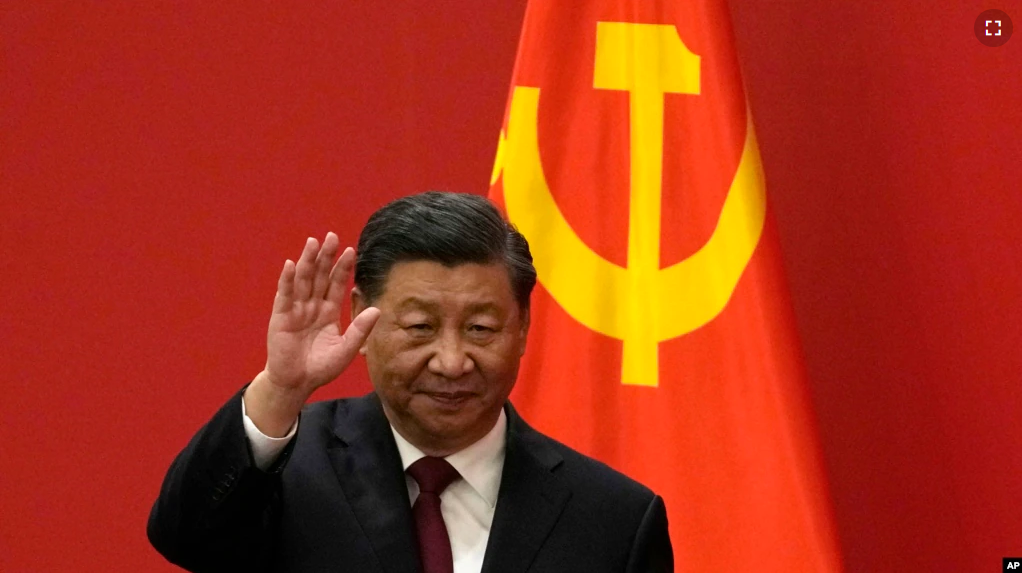Xi Jinping has begun his third five-year term as China’s president.
Chinese officials changed the country’s constitution in 2018 to permit China’s presidents to serve more than 10 years. The Chinese Communist party also appointed officials loyal to Xi to the seven-member ruling Standing Committee. This likely makes Xi China’s most powerful ruler since Mao Zedong, the first leader of Communist China.
Under Xi’s 10 years in power, China has experienced big changes, both within the country and in relation to the rest of the world.
Opinions of China
U.S.-China relations appear to have gotten worse in recent years, and studies suggest Western public opinion also has worsened. The studies note worries over China’s human rights record and China’s increasingly aggressive actions and statements toward Taiwan.
For example, in 2017, more than 60 percent of Australians had a positive opinion of China. The Pew Research Center recently said that number fell to about 15 percent in 2022.
State security measures
Under Xi, the areas of Tibet, Xinjiang and Hong Kong have faced measures that the ruling Chinese Communist Party said were aimed at increasing security. Xi began large operations that put these areas under increased government control.
In Xinjiang, an estimated one million minority Muslim Uyghurs were put in camps. Human rights groups say more than 227,000 people were arrested or prosecuted in the region in 2017.
In Hong Kong, Xi answered huge anti-government protests in 2019 with a broad national security law.

All Chinese leaders since Mao have said “reunifying” China with the self-governed island of Taiwan is important. Under president Xi, China’s military has increased its activity around the island in recent years. U.S. House Speaker Nancy Pelosi’s visit in August was followed by huge Chinese military exercises.
In addition, the Chinese military has been getting closer in size to the United States’ military. The U.S. Congressional Research Service reported that China currently has about 50 more warships than the U.S. Some U.S. officials warn that China’s ability to capture Taiwan is increasing.
Economy
Xi has increased state control of China’s economy and is enforcing more rules on some areas of private business. These include online platforms and for-profit education.
These rules, along with continuing COVID-19 measures, have increased urban unemployment and pushed down consumer confidence.
Years of double-digit growth ended before Xi took office. China’s economic growth rate has been getting slower. China’s National Bureau of Statistics said growth was eight percent in 2021. Also, incomes have steadily risen under Xi.

Income inequality, however, has been increasing too. And there is a big difference in wealth between urban and rural areas. Xi is seeking to improve this with his “common prosperity” policy.
China has one of the highest income inequalities among large economies, along with the United States.
Xi has said ending extreme poverty in China is one of the important goals reached by the Communist Party in recent years. In 2012, 10 percent of the population was living on less than $1.25 per day. In 2021, the Chinese government said that number was zero percent.
Reducing corruption, increasing censorship
Upon taking office, Xi began a big effort to stop corruption within the Communist Party. This action has been popular with the public. Xinhua news agency said that, in 2013, the government brought fewer than 200,000 corruption cases. In 2021, that number was about 600,000. Experts say the anti-corruption campaign has been a tool for removing Xi’s political opponents from office.
Political freedoms and environmental issues
Xi has punished people who protest and express opposition political beliefs. Safeguard Defenders, a human rights group, estimates that detentions and surveillance of individuals rose from around 2,000 to almost 6,000 individuals between 2013 and 2020. Control of information on the internet inside China’s “Great Firewall” has also increased.
And China’s environmental activities have changed. Currently, coal provides almost 60 percent of China’s energy, but air quality in China has improved in recent years. China also has become the top manufacturer of electric vehicles. China has increased production from about 500,000 vehicles in 2015 to about 3.5 million in 2021.
I’m Faith Pirlo. And I’m Andrew Smith
Andrew Smith adapted this Reuters report for VOA Learning English.
______________________________________________________________________
Words in This Story
positive –adj. good or useful
prosecute –v. to place someone on trial after accusing them of a crime
broad –adj. wide; great in size or extent
platform –n. a system that sends information to a lot of people
consumer –n. a person who pays for goods and services with their own money
double-digit –adj. 10 or more
surveillance –n. the act of carefully watching someone or something especially in order to prevent or discover a crime
